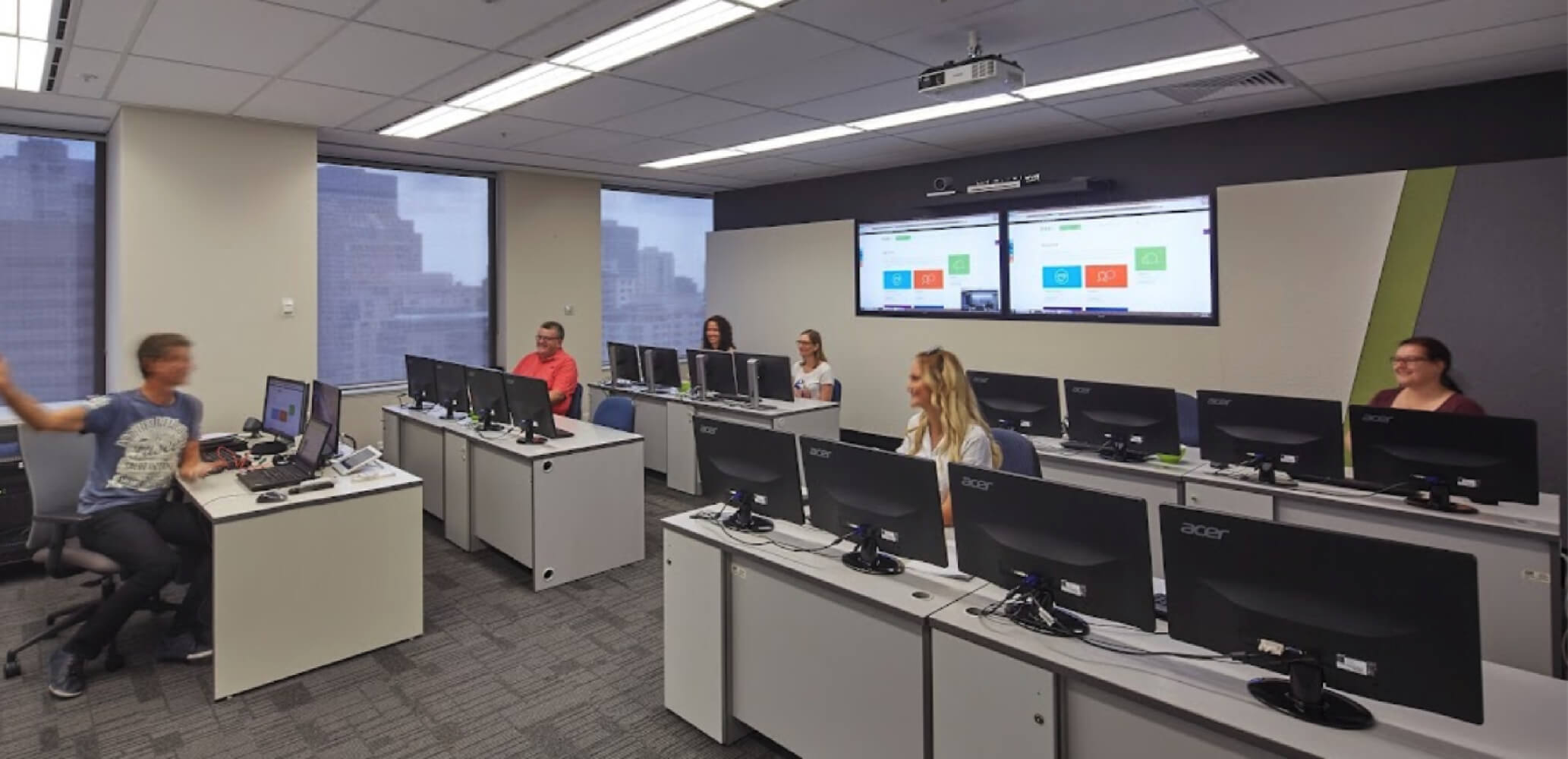Lead with Confidence, Clarity and Trust – Why Soft Skills Define True Leadership
In today's evolving workplaces, technical know-how will only take leaders so far. The most impactful leaders – the ones who inspire, influence, and guide their teams through change – have something else in common: strong soft skills.
Soft skills include emotional intelligence, communication, adaptability, and the ability to manage people, not just tasks. They are the traits that allow leaders to delegate without hovering, empower teams without control, and create high-performing cultures without burning people out.
If you're a team leader, manager or aspiring leader, this blog will explore the essential soft skills that separate good managers from great ones. We’ll also show you how Nexacu’s professional development courses can help you lead with confidence – without micromanaging.
Why Soft Skills Matter More for Leaders in 2025

As hybrid work models, automation, and AI redefine roles, leaders are being called on to do more than manage outputs. They must:
• Build trust across remote and in-person teams
• Communicate vision with clarity and empathy
• Resolve conflict and manage emotions
• Influence without authority
• Adapt quickly to change
According to LinkedIn Learning, emotional intelligence and communication are two of the top five leadership capabilities in demand for 2025. Deloitte reports that 89% of talent professionals say soft skills are more important than ever.
The 7 Core Soft Skills That Define Exceptional Leaders
1. Emotional Intelligence (EQ)

Leaders with high EQ understand their own emotions, read others' cues, and adapt their responses. They build psychological safety and reduce workplace stress.
Nexacu Course: Assertiveness & Confidence
• Greater team trust and retention
• Better stress and emotion regulation
• Empathetic leadership during change
2. Communication Mastery

Great leaders don’t just talk – they listen, adapt, and clarify. They know how to provide feedback that lands, communicate vision, and align stakeholders.
Nexacu Course: Communication Skills
• Tailoring tone and delivery to different audiences
• Facilitating discussions instead of directing monologues
• Leading virtual and hybrid meetings with engagement
3. Decision-Making Under Pressure
Strong leaders make informed decisions calmly – especially under pressure. They can justify tough calls while maintaining morale.
Real scenario: During a delayed product launch, a manager clearly communicated a revised timeline, addressed team concerns, and avoided blame – keeping everyone focused.
4. Coaching and Feedback Skills

Good managers tell. Great leaders coach. They:
• Use growth-based questions to prompt ownership
• Give timely, specific, and constructive feedback
• Support high performers and those needing guidance
Nexacu Course: Presentation Skills
5. Conflict Resolution and Negotiation
Avoiding conflict doesn’t prevent tension – it builds it. Leaders with strong soft skills know how to surface and resolve conflict early.
• Listening to both sides impartially
• Facilitating respectful dialogue
• Negotiating shared outcomes
“Conflict doesn’t derail great teams – it strengthens them when handled well.”

6. Adaptability and Change Agility
When plans change, how you lead makes all the difference. Agile leaders stay grounded and focused while guiding their teams through ambiguity.
Leadership Growth Tip: Model a growth mindset. Celebrate learning moments. Acknowledge uncertainty while maintaining vision.
7. Influence and Vision Sharing
You don’t need positional power to lead. Great leaders inspire followership by sharing a compelling vision and influencing across teams.
Nexacu Course: Time Management
Real-World Leadership Scenarios
Case Study 1: Resolving Hybrid Team Tension
A Sydney-based manager noticed a disconnect between in-office and remote staff. They used active listening techniques from Nexacu training, implemented weekly hybrid rituals, and ran conflict resolution workshops. Team unity improved in 3 months.
Case Study 2: Coaching for Growth
A Brisbane project manager supported an underperforming team member with feedback and coaching tools gained from a Communication Skills workshop. Not only did performance lift, the individual was promoted six months later.
Case Study 3: Leading Through M&A Change
During an organisational restructure, an IT manager led with transparency. By communicating openly and encouraging staff feedback, they kept morale high and delivery consistent.
Matching Soft Skills to Leadership Styles
| Leadership Style | Key Soft Skills |
|---|---|
| Transformational | Vision, influence, empathy |
| Servant | Active listening, humility, support |
| Democratic | Collaboration, feedback, communication |
| Transactional | Structure, clarity, performance management |
| Coaching | Empathy, questioning, a growth mindset |
How to Develop Leadership Soft Skills Intentionally

• Training and Workshops: Practical, scenario-based learning is essential. Explore Nexacu’s Soft Skills Courses
• Coaching and Mentorship: Mentors help reflect, troubleshoot, and model leadership skills. Regular mentoring accelerates learning through feedback and guidance.
• Feedback and Self-Assessment: Use tools like DISC, MBTI or 360-degree feedback to build self-awareness. Regularly reflect on your behaviour and leadership impact.
• Practice in Safe Environments: Step up to lead internal initiatives, meetings or onboarding. Soft skills develop with repetition and real-world feedback.
HR & L&D: Building a Leadership Pipeline with Soft Skills
Leadership development isn’t optional – it’s a business differentiator.
Strategies that work:
• Identify high-potential talent early
• Offer blended pathways (face-to-face + online)
• Integrate soft skills into leadership capability frameworks
• Measure impact through engagement, delivery outcomes and retention
Ask Nexacu about:
• Custom leadership pathways
• Team workshops (onsite or remote)
• CPD-recognised soft skills training
Measuring the Impact of Soft Skills

Metrics to track include:
• Employee engagement scores
• Quality and frequency of feedback conversations
• Promotion and retention rates
• Conflict resolution outcomes
ROI Insight: Managers trained in feedback and coaching saw 21% higher team performance (LinkedIn Learning, 2024).
FAQs – Soft Skills for Leadership Success
Q: Can soft skills be developed through training?
A: Yes. Like any skill, they can be developed through intentional learning and feedback.
Q: What’s the best soft skill to start with as a new leader?
A: Communication and emotional intelligence form the strongest base.
Q: Can Nexacu train leadership teams together?
A: Yes – we offer private workshops, onsite or online, tailored to leadership goals.
Final Thoughts: Lead with Purpose
The urge to control often comes from fear—fear of imperfection, uncertainty, or whether others will deliver. But with strong soft skills, leaders can rise above that fear and:
• Set clear expectations
• Delegate with confidence
• Communicate decisions effectively
• Inspire others to lead with you
Leadership isn’t about controlling every detail. It’s about showing up with clarity, empathy, and intention – and letting your team shine.
Take the first step: Explore Nexacu’s Soft Skills Training


























